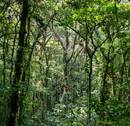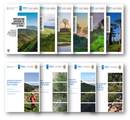News

The Argentine Republic has a native forest cover of 53.6 million hectares (ha), distributed in seven regions that range from temperate forests to subtropical forests. The loss of coverage of native forests has had a great impact on the country's forestry sector. However, deforestation continues to be relevant, despite its slowdown in recent years. Between 2006 and 2008, the annual rate of deforestation decreased from more than 360 000 hectares per year to less than 200 000 hectares per year as of 2015. The main drivers of deforestation are linked to the growth of the agricultural frontier, urbanization, of forest...

For Russia, the issue of science-based restoration and sustainable, wet management of peatlands is particularly relevant. The urgency is determined by the fact that this type of wetlands perform a number of important ecosystem functions for humans. If there is a functional failure, caused in particular by anthropogenic factors, the negative consequences are numerous and diverse.
Organized by FAO, a round table discussion entitled “Climate-smart agriculture in wetlands and peatlands: Prospect for Russia” was held on 5 March on the premises of the Russian State Agrarian University – Timiryazev Academy. Experts were looking into specific opportunities to further develop wet biomass...

According to a recent study, between 2003 and 2012, approximately 67 million hectares (1.7%) of forest land is burned annually, mostly in tropical South America and Africa. The immediate and long-term impacts of wildfires can be devastating to communities, economies and forest ecosystems. The increase in forest wildfires around the world also threatens the long-term permanence of carbon stocks in all types of forests, as well as forest regeneration and reforestation projects. Many countries in Africa are particularly vulnerable to this threat, with Sudan being one of them. How the country is rethinking its fire management and monitoring in the...

As the most populated country in Africa, Nigeria is facing enormous pressure on its natural resources. According to Global Forest Resources Assessment 2015, the current deforestation rate is estimated at 3.5% - one of the highest in the world. The Federal Government of Nigeria is determined to protect and sustainably manage its remaining forest resources and, therefore, embarked upon REDD+ with support of the UN-REDD Programme – which supported a national programme from 2012 to 2016, and the Forest Carbon Partnership Facility (FCPF).
Overall, the country has been making steady progress since 2010, paving its way for the implementation of REDD+ by taking advantage of available open source...
New publications for Tunisia and Madagascar to support planning for REDD+ national programmes
18/02/2019
18/02/2019

Extensive research and consultation in both Tunisia and Madagascar have resulted in the launching of 10 new national publications that form the foundation for the countries’ REDD+ preparation activities. In both countries, the UN-REDD Programme facilitated several assessments on key topics related to REDD+ programme development including analyses of the tenure rights regimes, the institutional context, the legal and policy frameworks, and the basis for national forest monitoring systems. These studies, developed in consultation with local and international experts, and refined and validated with a range of stakeholders, form a body of applicable knowledge and provide guidance on ways forward...

